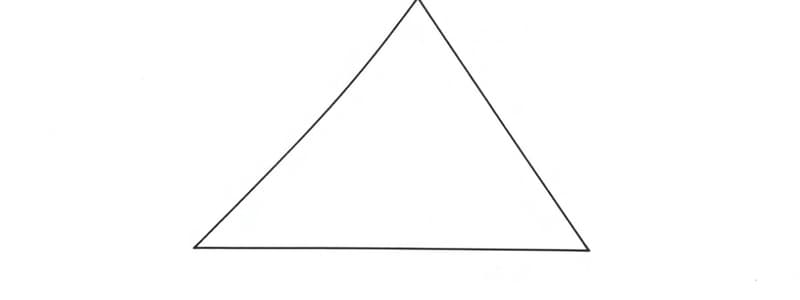Podcast
Questions and Answers
What is the origin of the word 'trigonometry'?
What is the origin of the word 'trigonometry'?
- Greek words meaning triangle and measurement
- French words meaning angle and measurement
- Latin words meaning triangle and measurements (correct)
- Arabic words meaning angle and length
Clockwise rotation is represented as a positive direction.
Clockwise rotation is represented as a positive direction.
False (B)
What is the degree measurement of a full circle?
What is the degree measurement of a full circle?
360 degrees
1 degree (1°) is equivalent to __________ minutes.
1 degree (1°) is equivalent to __________ minutes.
Match the angle name with its representation:
Match the angle name with its representation:
Which of the following correctly defines a ray?
Which of the following correctly defines a ray?
What is the equivalent of π/2 radians in degrees?
What is the equivalent of π/2 radians in degrees?
An angle is in standard position when its initial side is on the positive x-axis.
An angle is in standard position when its initial side is on the positive x-axis.
What is the coterminal angle of -330° in the counter-clockwise direction?
What is the coterminal angle of -330° in the counter-clockwise direction?
The reference angle for 570° is 30°.
The reference angle for 570° is 30°.
What is the reference angle for 115°?
What is the reference angle for 115°?
In Quadrant III, the reference angle is calculated using the formula RA = θ - ______.
In Quadrant III, the reference angle is calculated using the formula RA = θ - ______.
Match the angles with their corresponding reference angle formulas:
Match the angles with their corresponding reference angle formulas:
What is the coterminal angle of 2π/3 rad in the clockwise direction if calculated once?
What is the coterminal angle of 2π/3 rad in the clockwise direction if calculated once?
What is the reference angle for -π/6 rad?
What is the reference angle for -π/6 rad?
The formula for coterminal angles in the counter-clockwise direction is θ + (360°)(n).
The formula for coterminal angles in the counter-clockwise direction is θ + (360°)(n).
What is the radian equivalent of 240°?
What is the radian equivalent of 240°?
Two angles that add up to 180° are called complementary angles.
Two angles that add up to 180° are called complementary angles.
What is the radian measure for 150°?
What is the radian measure for 150°?
The sum of two complementary angles is _____ degrees.
The sum of two complementary angles is _____ degrees.
Match the angles with their relationship type:
Match the angles with their relationship type:
Which of the following angles is coterminal with 360°?
Which of the following angles is coterminal with 360°?
A coterminal angle can only be found by adding 360° or subtracting 180°.
A coterminal angle can only be found by adding 360° or subtracting 180°.
Convert 5π/6 radians to degrees.
Convert 5π/6 radians to degrees.
Two angles whose sum is _____ are called supplementary.
Two angles whose sum is _____ are called supplementary.
Flashcards are hidden until you start studying
Study Notes
Trigonometry
- Originates from the Latin words "trigonon" (triangle) and "metria" (measurement)
- Branch of mathematics dealing with relationships between triangles, angles, and their measurements.
Angle
- Formed by two rays sharing a common endpoint called the vertex.
- Can be defined as the amount of space covered by the rotation of one ray.
- The fixed ray is the initial side and the moving ray is the terminal side.
Naming an Angle
- Uses Greek alphabets (θ, φ, β, ω, α, γ), capital English letters with degree symbol (A°, B°, C°), or English letters with angle sign (∠A, ∠B, ∠C).
Rotation of an Angle
- Counter-clockwise rotation: opposite direction of clock movement, represented by a positive (+) sign.
- Clockwise rotation: same direction as clock movement, represented by a negative (-) sign.
Angle Measurement Units
Degree (°)
- Divides a whole circle into 360 parts.
- One degree can be further divided into minutes (60') and seconds (60").
- 1° = 60' = 3600"
Radian (rad)
- Standard unit of angle measurement.
- Length of the arc or circumference of the unit circle.
Angle Standard Position
- Angle in standard position on the Cartesian plane has its initial side along the positive x-axis and its vertex at the origin.
Conversion of Angle Units
-
Full circle: 360° = 2π rad
-
Half circle: 180° = π rad
-
Degrees to radians: Multiply degrees by π rad / 180 degrees.
-
Radians to degrees: Multiply radians by 180 degrees / π rad.
Relationship Angles
Complementary Angles
- Two angles whose sum is 90° or π⁄2 rad.
- Examples: 50° and 40°; 30° and 60°; π⁄2 rad and π⁄2 rad.
Supplementary Angles
- Two angles whose sum is 180° or π rad.
- Examples: 120° and 60°; 100° and 80°; π⁄2 rad and 3⁄2 π rad.
Coterminal Angles
- Two angles with the same initial and terminal sides, regardless of the number of rotations.
- Counter-clockwise: θ + (360°) (n) or θ + (2π) (n)
- Clockwise: θ - (360°) (n) or θ - (2π) (n), where n is an integer.
Reference Angles
- Smallest positive acute angle between the terminal side of a given angle and the nearest x-axis.
- Quadrant I: RA = θ
- Quadrant II: RA = 180°-θ
- Quadrant III: RA = θ - 180°
- Quadrant IV: RA = 360°-θ
- Radian:
- Quadrant I: RA = θ
- Quadrant II: RA = π - θ
- Quadrant III: RA = θ - π
- Quadrant IV: RA = 2π - θ
Studying That Suits You
Use AI to generate personalized quizzes and flashcards to suit your learning preferences.




